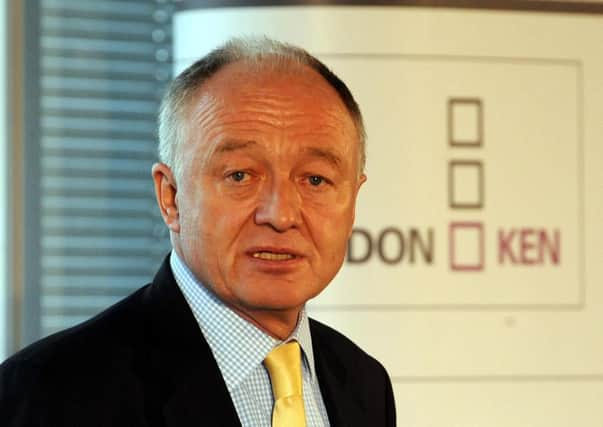Dani Garavelli: Masculinity can hurt men too


YOU’D think those who have been at the receiving end of the worst of the sneering over International Women’s Day might maintain a dignified silence over the male equivalent, if only to stop the men’s rights movement saying: “I told you so.” Anti-feminists already see the fight for gender equality as a zero-sum game in which every example of female oppression has to be countered with an example of male oppression and the question of human rights is secondary to the exposing of “double standards.” Even if – like MP Jess Phillips – you believe International Men’s Day is as redundant a concept as white history month (and I don’t) – trying to shut down a parliamentary debate on it is a massive own goal. Not only does it legitimise these campaigners’ sense of grievance, it means we waste another day on tit-for-tat name-calling and neurotic navel-gazing instead of coming up with social policies to improve all our lives.
York University became emblematic of the absurdity of the current discourse when it cancelled an event to mark the day on the grounds it wouldn’t “combat inequality but merely [amplify] existing, structurally imposed, inequalities.” Not only does this seem to be overstating the case (if the patriarchy is entrenched, how is a bunch of undergraduates having a pow-wow going to exacerbate the situation?) but it also underlines the illiberality that seems to be sweeping campuses. When a male student committed suicide the following day, it could hardly – as some implied – be blamed on the institution, but it did serve as a reminder that there are more important things we ought to be doing than engaging in futile ideological point-scoring.
Advertisement
Hide AdAdvertisement
Hide AdPersonally, I don’t have any problem conceding that masculinity can have a toxic impact on men too. We already know men are less likely to seek help for depression and three times more likely to kill themselves. We know boys fare worse at schools which tend to be geared towards the learning style of girls, while men can be discriminated against in child custody cases. And if I were a father shouldering my share of the child care, I would be a bit fed up with the trope of the bumbling dad, incapable of organising a ball fight in a soft play area. Admittedly, some of those problems may be the flipside of a system men devised to their own advantage, but it doesn’t make them any less damaging to the individuals involved or to society as a whole. We all – men and women – suffer the ill-effects of a macho culture, whether they are manifested in substance abuse, domestic violence, or the death through suicide of a brother, son or husband.
Of course, depression is not peculiar to men. Indeed statistics suggest more women are affected (although this may simply reflect their greater willingness to seek treatment). But what is increasingly obvious is that it’s harder for men to be open about it; to admit to a problem that may be perceived as a weakness or thrown back at them at a later date. We have a long way to go, as MP Kevan Jones would no doubt testify. In 2012, he won praise for a speech he gave about his struggle with depression, though he feared that doing so might end his career. Yet last week Ken Livingstone responded to Jones’s criticism of his appointment as co-convener of Labour’s defence review by suggesting he needed psychiatric help. The former mayor of London insists he knew nothing of the MP’s past, but the length of time he took to apologise suggests, at the very least, a disregard for stigmatisation and the welfare of others.
It’s important that men who do speak out are not made to feel their problems are an affront to their manliness because early treatment can make all the difference. With suicide now the biggest killer of males aged between 20 and 49, the expectations placed upon them by society can no longer be swept under the carpet.
Despite this, when men try to confront the pitfalls of masculinity, they are shot down in flames. Earlier this year, the writer Matt Haig was accused of trying to hijack feminism after he flirted with the idea of writing a book on the issue. But why shouldn’t men confront a culture that forces them to conform to damaging gender stereotypes in the same way as women? Isn’t their desire to re- examine fixed concepts of gender progress?
I do understand the ambivalence over International Men’s Day (sure, aren’t men’s achievement feted every day?). I even understand Jess Phillips’ dismissive reaction to Philip Davies’s call for a debate, given he recently filibustered a bill to give carers free hospital parking and later suggested division between men and women was stirred up by “militant feminists” and “politically correct males”.
But sneering about problems that disproportionately affect men places us if not directly alongside, then at least in the same vicinity as the men’s rights activists, who think the gender pay gap is a myth and use words like feminazi; and that’s company I’d rather not keep.
International anything days are of limited value; the most they can offer is a fleeting opportunity to raise awareness before we all move on to philosophy or the industrialisation of Africa. But our current fixation with oppression one-upmanship means even that was missed. Any serious discussion of male cancers, suicide or depression was drowned out by a manufactured controversy and the fall-out from it. And that was of benefit to no-one.